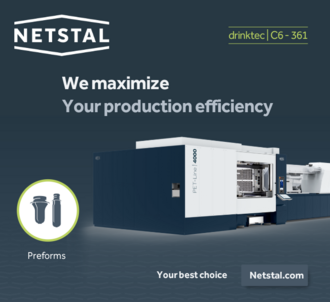The objective of the deal with RPC Superfos (injection moulding and thermoforming), RPC Bebo (thermoforming) and RPC Kambo (injection moulding and blow moulding) is to deliver increased efficiency, stability and superior packaging product development for an optimal end-user experience.
Sindre W. Møgster-Walthinsen, Senior Category Manager – TINE Procurement DM explains:
“Based on our positive experience with the RPC companies, we decided to enter a cooperation agreement, because we expect it to result in a range of important advantages. As a leading dairy company operating in a competitive environment, we have to stay on top of development. Our packaging must be functional, sustainable and competitive − and always attractive in the eyes of the end-user. With this new setup, we will obtain improved working processes and an increased number of innovative packaging solutions in line with current market demands.”
The agreement will allow TINE to create and develop solutions involving various production methods and materials. In light of this, a medium-term agreement is ideal, as it ensures continuity, stability and efficiency, for instance regarding tool making.
“Our goal is to choose the right type of plastic material for the packaging of our products and to use an optimal amount of virgin material,” continues Sindre W. Møgster-Walthinsen. “We look forward to innovative solutions with oxygen and light barrier protection consisting of one single type of material. In future, plastic packaging must be adapted for a circular economy with increased recycling and reuse.
“It is vital for us that RPC understands our customers and end-users. We also value sound knowledge about the carbon footprint and recycling when cooperating with our suppliers. From our point of view, it is important that suppliers like RPC have the broadest understanding of packaging materials.”
TINE has already been working with RPC Superfos, RPC Bebo and RPC Kambo for some time, and is very pleased with the high level of customer service and short response time to solve any issue that may arise regarding quality or delivery. Inevitably, the collaboration and dialogue between packaging provider and filler become more harmonised within a three-year time frame, as this allows both parties to get to know each other’s working methods and internal processes.
“We have a high-quality business relationship and experience a customer-focused approach,” Sindre W. Møgster-Walthinsen concludes. “Our open dialogue and smooth working processes with the RPC companies keep improving and our consistent cooperation is beneficial to all involved.”






